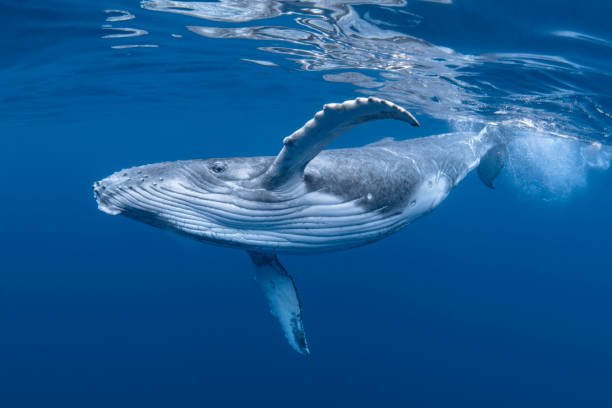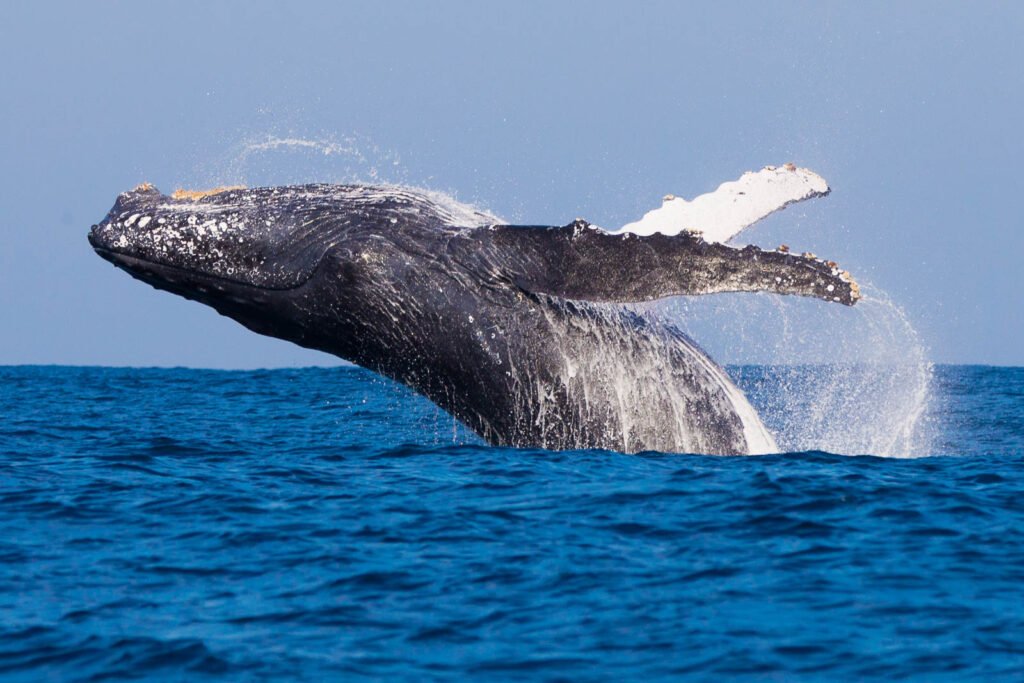
Whales and Burials: Exploring the Fascinating Connection
One of the most intriguing connections in human culture is the relationship between whales and burials. Throughout history, whales have held a significant place in the collective consciousness of various societies, with a rich tapestry of myths, folklore, and symbolism woven around these majestic creatures. Moreover, the concept of whale burials has fascinated people for centuries, prompting scientific exploration, ethical debates, and environmental considerations. In this article, we will delve into the cultural significance of whales, the ritualistic process of whale burials, the environmental impact they have, the ethical considerations surrounding these burials, and the future of this unique phenomenon.
Table of Contents
ToggleUnderstanding the Cultural Significance of Whales
Whales have long been revered and celebrated in numerous cultures around the world. The profound connection between humans and whales is evident in the myths and folklore that have been passed down from generation to generation. In mythology and folklore, Whales and Burials often serve as powerful symbols of strength, wisdom, and spirituality.
One of the reasons why whales hold such cultural significance is their sheer size and power. The majestic presence of these marine creatures has captivated human imagination for centuries. Their ability to navigate vast oceans and dive to great depths has been a source of awe and wonder for many cultures.
Furthermore, whales’ intelligence and complex social structures have also contributed to their revered status. Scientists have discovered that whales possess a high level of cognitive abilities, including self-awareness, problem-solving skills, and advanced communication systems. These traits have led many cultures to view Whales and Burials as highly intelligent beings, capable of profound wisdom and understanding.
The Role of Whales in Mythology and Folklore
In various mythologies, whales are depicted as powerful deities or creatures that possess extraordinary abilities. For example, in Norse mythology, the giant sea serpent Jörmungandr is said to encircle the world and longs for a final battle with the god Thor. This epic battle symbolizes the eternal struggle between chaos and order, with the whale representing the untamed forces of nature.
Meanwhile, Native American tribes from the Northwest Coast believe that killer whales are ancestors who transform into whales to guide and protect their descendants. These tribes hold elaborate ceremonies and rituals to honor and communicate with these ancestral beings, seeking their guidance and protection in their daily lives.
Whales also play a significant role in the creation myths of many cultures. In some traditions, whales are seen as the creators of the world, responsible for shaping the land and sea. Their immense power and ability to traverse vast distances make them ideal candidates for such a role in the cosmic order.
Whales in Indigenous Cultures

Indigenous cultures have developed deep spiritual connections with whales. These cultures often view Whales and Burials as guardians, teachers, or even relatives. For example, in Maori culture, the whale is regarded as a protector and guide of navigators. The Maori people believe that whales possess ancestral knowledge and can assist them in their seafaring journeys.
Similarly, the Inuit people of the Arctic have a strong bond with whales. They believe that whales are their kin and treat them with utmost respect. Inuit hunters have a deep understanding of whale behavior and possess intricate knowledge of their migration patterns. This intimate knowledge is passed down through generations, ensuring the sustainable coexistence between humans and whales.
The connection between indigenous peoples and whales highlights the harmonious relationship they have nurtured with nature over centuries. These cultures recognize the interconnectedness of all living beings and understand the importance of preserving the delicate balance of the natural world.
The Concept of Whale Burials
As intriguing as the cultural significance of Whales and Burials is, the notion of whale burials takes this connection to an even deeper level. Whale burials are a ritualistic practice observed in several cultures around the world and are steeped in symbolism and tradition.
Whale burials involve elaborate rituals and ceremonies that vary among different cultures. In some cases, the entire community comes together to mourn the loss of a stranded or beached whale. These rituals can involve singing, dancing, and the offering of gifts to the deceased whale. The process is often seen as a way to honor the animal and express gratitude for its natural bounty.
One fascinating aspect of whale burials is the role they play in the cultural fabric of communities. These rituals not only bring people together in times of loss but also serve as a reminder of the interconnectedness between humans and the natural world. The act of coming together to mourn a whale’s passing reinforces the idea that we are all part of a larger ecosystem, and our actions have consequences that ripple through the environment.
Furthermore, whale burials hold deep symbolic meaning. They often represent a connection between life and death, the cyclic nature of existence, and the preservation of balance within the ecosystem. By giving a ceremonial send-off to these magnificent creatures, societies honor the whales’ role in maintaining the oceans’ delicate equilibrium.
It is interesting to note that whale burials are not limited to specific regions or cultures. From the Inuit communities of the Arctic to the Maori tribes of New Zealand, these rituals have been practiced for centuries, showcasing the universal reverence for these majestic creatures. The rituals themselves can vary greatly, reflecting the unique beliefs and customs of each culture.
In some cultures, the whale’s burial is accompanied by storytelling and oral traditions, where elders pass down knowledge about the significance of these creatures and their place in mythology. This passing down of wisdom ensures that future generations understand and appreciate the importance of whales in the cultural heritage of their communities.
Whale burials also serve as a reminder of the fragility of our planet’s ecosystems. As whales face numerous threats, including habitat destruction, pollution, and climate change, these rituals highlight the urgent need for conservation efforts. By honoring the whales in death, communities strive to protect them in life, advocating for their preservation and the preservation of the oceans they inhabit.
The Environmental Impact of Whale Burials
Beyond the cultural and symbolic aspects, whale burials also have important environmental implications. Understanding the ecological role played by whale carcasses and the effects of their burials on marine ecosystems is crucial for assessing the broader consequences of this practice.
The Ecological Role of Whale Carcasses
When a whale dies and sinks to the ocean floor, its carcass provides sustenance for a multitude of organisms. This process, known as whale fall, creates a unique ecosystem that supports the growth and survival of specialized species that thrive on the nutrients released from the decaying whale carcass.
The Effects of Whale Burials on Marine Ecosystems
While whale carcasses contribute to the productivity and biodiversity of marine ecosystems, the deliberate burial of whales can have both positive and negative effects. On one hand, burying whales on land can provide a nutrient-rich environment for vegetation to thrive, benefitting terrestrial ecosystems. On the other hand, in coastal areas, whale burials may potentially lead to pollution and attract scavengers, altering the balance of the local marine ecosystem.
The Ethical Considerations of Whale Burials
Given the complexities involved, the ethical aspects of whale burials have become a topic of great discourse. The debate surrounding whale burials centers around issues such as cultural preservation, conservation, and the potential risks to public health and environmental stability.
The Debate Surrounding Whale Burials
Some argue that whale burials are an essential part of cultural heritage, providing insights into the traditions and beliefs of past societies. They advocate for the continuation of these rituals as an important means of cultural preservation. Others, however, express concerns about the potential harm caused by whale burials, such as the spread of diseases or the disruption of delicate ecosystems.
The Conservation Efforts for Whale Populations
Concurrently, the conservation of whale populations has become a priority for many organizations and governments. Whale burials raise questions about the sustainability of practices that involve taking the lives of these creatures, regardless of the ceremonial or cultural significance attached to their deaths. Striking a balance between cultural heritage and environmental preservation is thus a complex challenge.
The Future of Whale Burials
Looking ahead, the future of whale burials remains uncertain. However, modern interpretations and adaptations of these ancient traditions, as well as scientific advancements, are shedding new light on this fascinating connection between whales and burials.
Modern Interpretations and Adaptations of Whale Burials
In some communities, whale burials have evolved to embrace more sustainable practices. For instance, eco-friendly alternatives such as the use of artificial reefs or ocean burials are being explored as ways to maintain traditional rituals while minimizing the environmental impact.
The Role of Science in Understanding Whale Burials
Scientific research plays a crucial role in deepening our understanding of whale burials. Studying the ecological consequences, cultural significance, and potential alternatives provides valuable insights that can help inform future decisions regarding whale burials. Additionally, scientific collaboration ensures that the preservation of whale populations and the delicate marine ecosystems they inhabit remains a top priority.
In conclusion, the fascinating connection between whales and burials reveals the intricate relationship between humans, nature, and the intangible symbolism we assign to these majestic creatures. The cultural significance, ritualistic processes, environmental impact, and ethical considerations associated with whale burials demonstrate the multidimensional nature of this practice. As we move forward, it is essential to navigate the complexities with respect for both cultural diversity and the preservation of our planet’s dwindling resources.

Leave a Reply